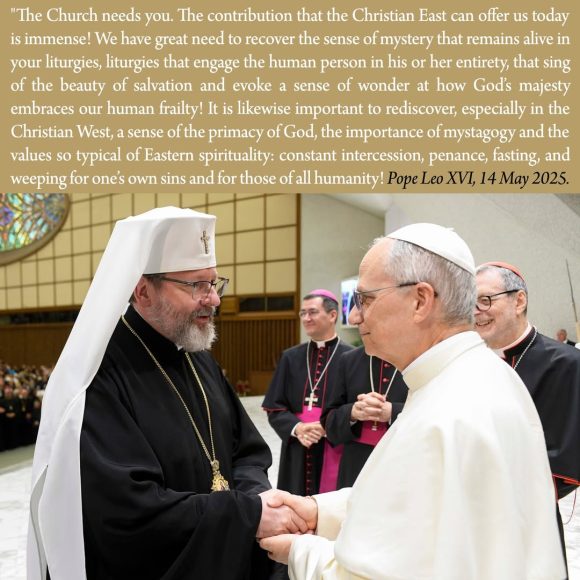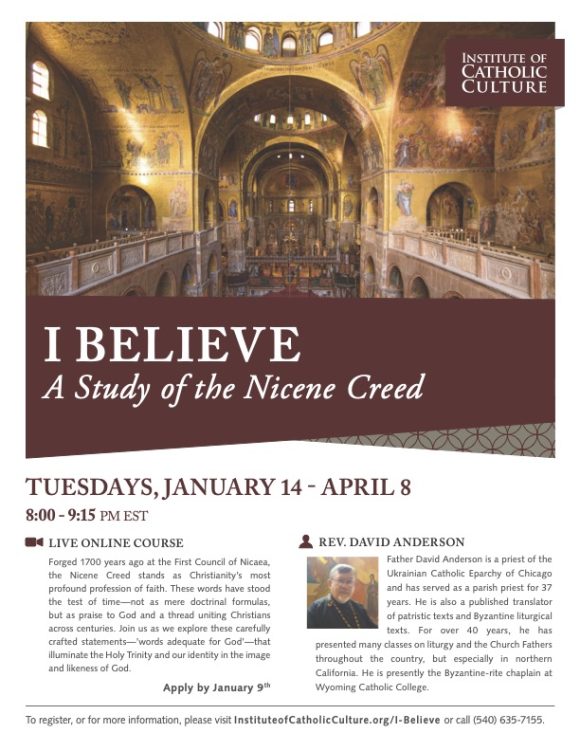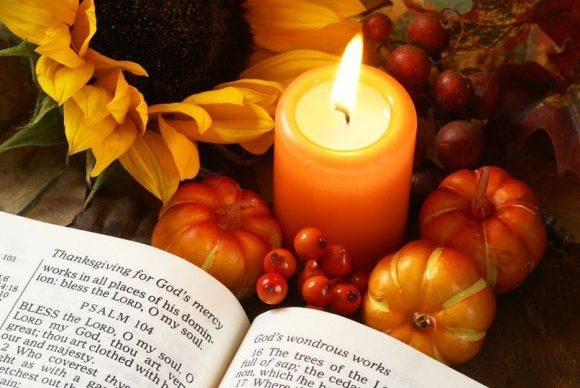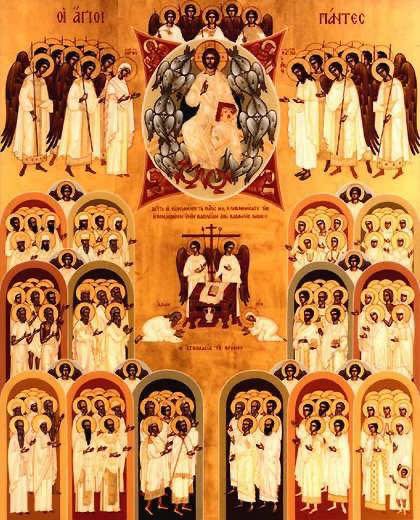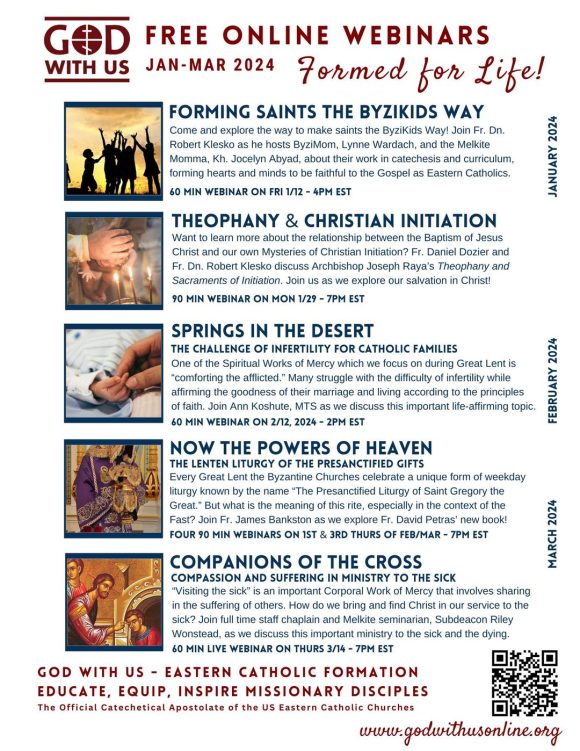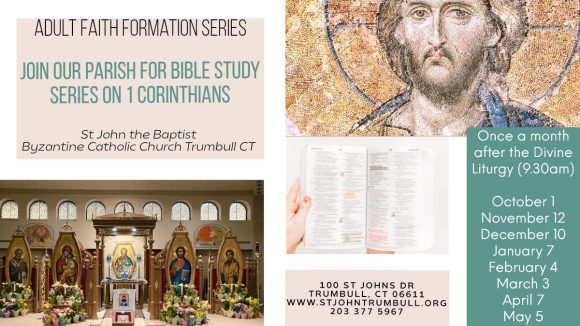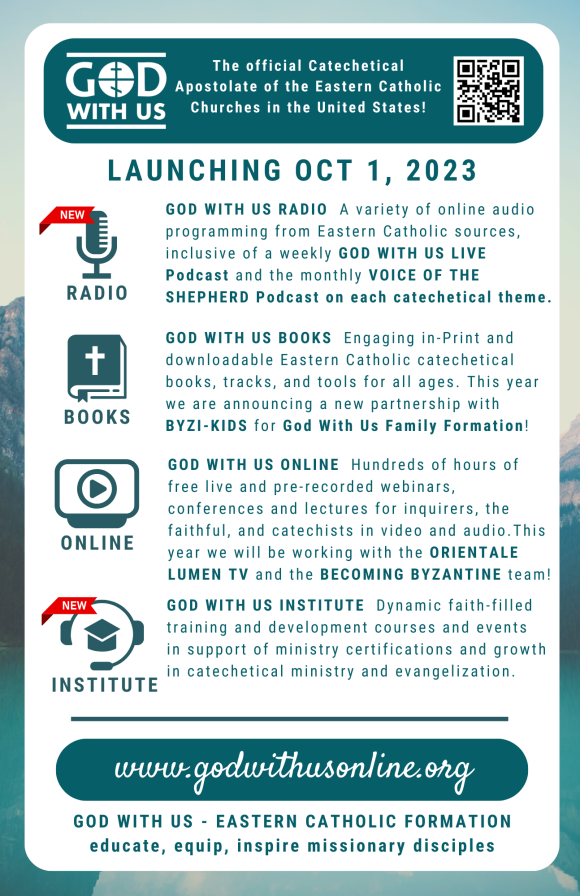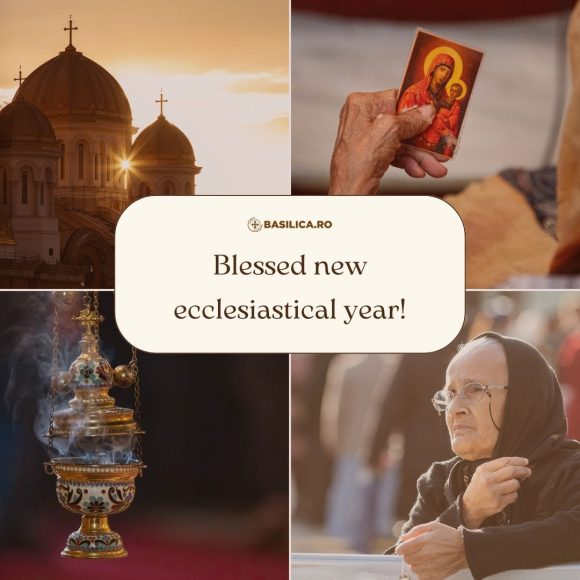This morning Pope Leo XIV met with His Beatitude Sviatoslav Shevchuk, major archbishop of Kyiv-Halyč, Ukraine. Is wasting no time getting down to work by having meetings with visiting bishops and others. This is the key way a pope gets to know those collaborating with him in ministry.
On May 14, the Pope met with the participants from the Eastern Churches in Rome for the Jubilee for Eastern Churches –the Holy Year. Various heads of the Sui Iuris Churches are in Rome for prayer, fraternity and meetings. Here’s Leo’s address. It is an excellent address and difficult to pull out just one paragraph for consideration. But perhaps this one –in addition to the one given in the image above– gives a sense of how Eastern Christianity is crucial in the overall picture of Catholicism:
“Your traditions of spirituality, ancient yet ever new, are medicinal. In them, the drama of human misery is combined with wonder at God’s mercy, so that our sinfulness does not lead to despair, but opens us to accepting the gracious gift of becoming creatures who are healed, divinized and raised to the heights of heaven. For this, we ought to give endless praise and thanks to the Lord. Together, we can pray with Saint Ephrem the Syrian and say to the Lord Jesus: “Glory to you, who laid your cross as a bridge over death… Glory to you who clothed yourself in the body of mortal man, and made it the source of life for all mortals” (Homily on our Lord, 9). We must ask, then, for the grace to see the certainty of Easter n every trial of life and not to lose heart, remembering, as another great Eastern Father wrote, that “the greatest sin is not to believe in the power of the Resurrection” (SAINT ISAAC OF NINEVEH, Sermones ascetici, I, 5).”
